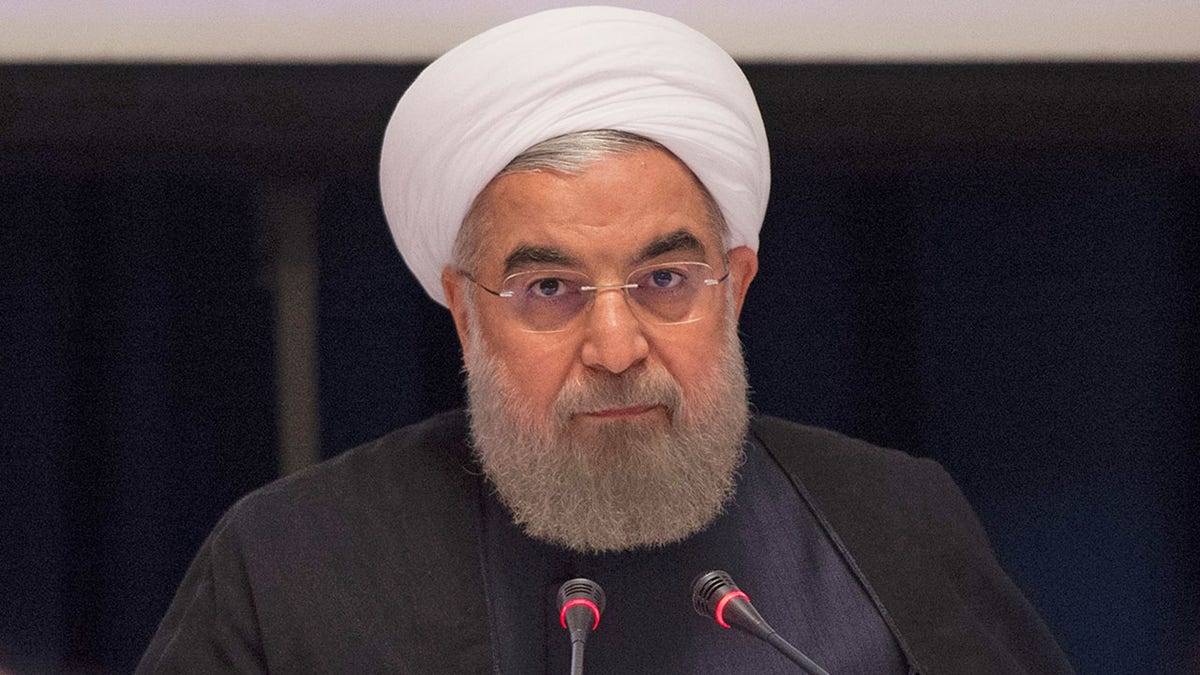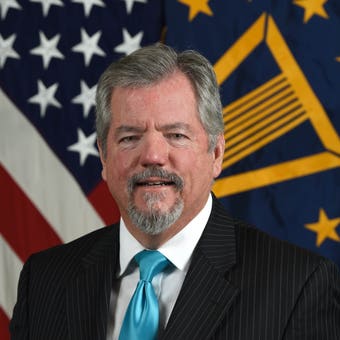Gingrich: Biden admin making ‘insane deal’ with Iran
Former House Speaker Newt Gingrich on Republicans being troubled about a possible breakthrough to restart the Iran nuclear deal.
Did you ever wonder why are we imposing a maximum pressure campaign on Russia while negotiating to lift one off Iran? The reason for imposing one on Russia -- even if it is better late than never -- is all too obvious, but at the same time the reason for removing massive sanctions from Iran eludes me.
With the invasion of Ukraine, we learned once again that autocratic leaders will tell you what they are going to do in advance and then, if given half a chance, they’ll do it. And, once again, we learned that these same autocratic leaders will then tell us bald-faced lies as they pursue their aforementioned desire. Iran’s Supreme Leader Khomeini said repeatedly that "The Muslims must fight until the annihilation of Israel." So, if Iran is given half a chance, what do reasonable people think they will do? And, should reasonable people now believe Iranian protestations to the contrary?
GOP SENATORS SLAM BIDEN FOR WORKING WITH RUSSIA ON IRAN DEAL DURING UKRAINE INVASION: ‘INSANE’

Iran's President Hassan Rouhani speaks at a news conference September 22, 2016 in New York. / AFP / DON EMMERT (Photo credit should read DON EMMERT/AFP via Getty Images) (Photo credit should read DON EMMERT/AFP via Getty Images)
In 1999, NATO launched an air war to prevent a humanitarian disaster in Kosovo precipitated by then Serbian President Milosevic who’s declared intent was to invade. He told us what he was going to do, we looked at the evidence, and since NATO had the capability and the will to act, NATO’s intervention saved a lot of lives. Good for NATO!
So, why doesn’t NATO apply the same rationale to Ukraine? NATO’s April 1999 "Statement on Kosovo" said its mission was a "verifiable stop to all military action and the immediate ending of violence; the withdrawal of all forces; the stationing of an international military presence; the unconditional and safe return of all refugees and displaced persons, and unhindered access to them by humanitarian aid organizations." This NATO pre-war ultimatum to Milosevic was unequivocal: "There can be no compromise on these conditions."
So, why hasn’t NATO agreed to a no-fly zone in Ukraine to prevent an even larger humanitarian disaster?
The answer is nuclear weapons. This week a friend posed this question: are we going to allow, for the first time, a nuclear-armed dictator to use nuclear blackmail to attack a non-nuclear state? My answer: apparently, we did, because Putin attacked Ukraine and continues to indiscriminately kill civilians while threatening nuclear retaliation should NATO intervene in any way.
We are, therefore, trying to punish Russia economically for Putin’s crimes without risking a nuclear confrontation. We are using all elements of our collective power to get Putin to stop, but it doesn’t look like Putin will anytime soon. Russia might choose to stop Putin, but it seems Putin didn’t get our memo. Clearly, he understands and practices nuclear blackmail.
So, why do we think less than maximum pressure on Iran will derail their ambitions to get the bomb if having the bomb gives autocrats so much power? In advance of Russia’s invasion of Ukraine, President Biden said that the threat of massive sanctions is a deterrent, while insisting that imposing them in advance undermines their deterrent value. We threatened a nuclear power with sanctions. It did not deter them. We imposed massive sanctions. They may change their behavior eventually -- sanctions take time to work -- but we don’t know if they will. Given this experience, we should try to change Iran’s behavior with maximum pressure now, rather than try to deter them with sanctions from using the bomb once they get it.
So, what could possibly explain our desire to lift sanctions thereby allowing Iran to sell oil again on the world market at the risk of the Ayatollahs going nuclear? Recalling Tip O’Neil’s adage that all politics are local, the price of gas at your local gas station may give us a clue. If Iran gets back to selling lots of oil, the price will come down. Iran selling oil would also give us more leverage to cut back on the consumption of Russian oil, while ensuring that America doesn’t have to get back into the dirty business of energy self-sufficiency. And so, it goes: another near-term decision that isn’t in our long-term interests. Events do indeed drive politics.
CLICK HERE TO SIGN UP FOR OUR OPINION NEWSLETTER
How do we get ourselves into these situations? First, we collectively fail to imagine that a world in which dictators, thugs, and tyrants do as they please is possible. This failure of imagination is why we do not work as effectively or as collectively as necessary to stop such people in advance. Second, we don’t act resolutely enough early enough because we suspend belief that the potential consequence could ever happen.
CLICK HERE TO GET THE FOX NEWS APP
Putin in Ukraine is all the reminder we need that in a nuclear-armed world we are all in this together, that tyrants and dictators tell you what they want and then lie continuously until they get it; and that resolute action before a tyrant acts, is our best hope to prevent a catastrophe. In this light, keeping tyrants from getting nuclear weapons, and keeping those who have them from threatening to use them, must be our highest priorities. It’s in Ukraine’s short-term interest and our long-term interest that we succeed.

























